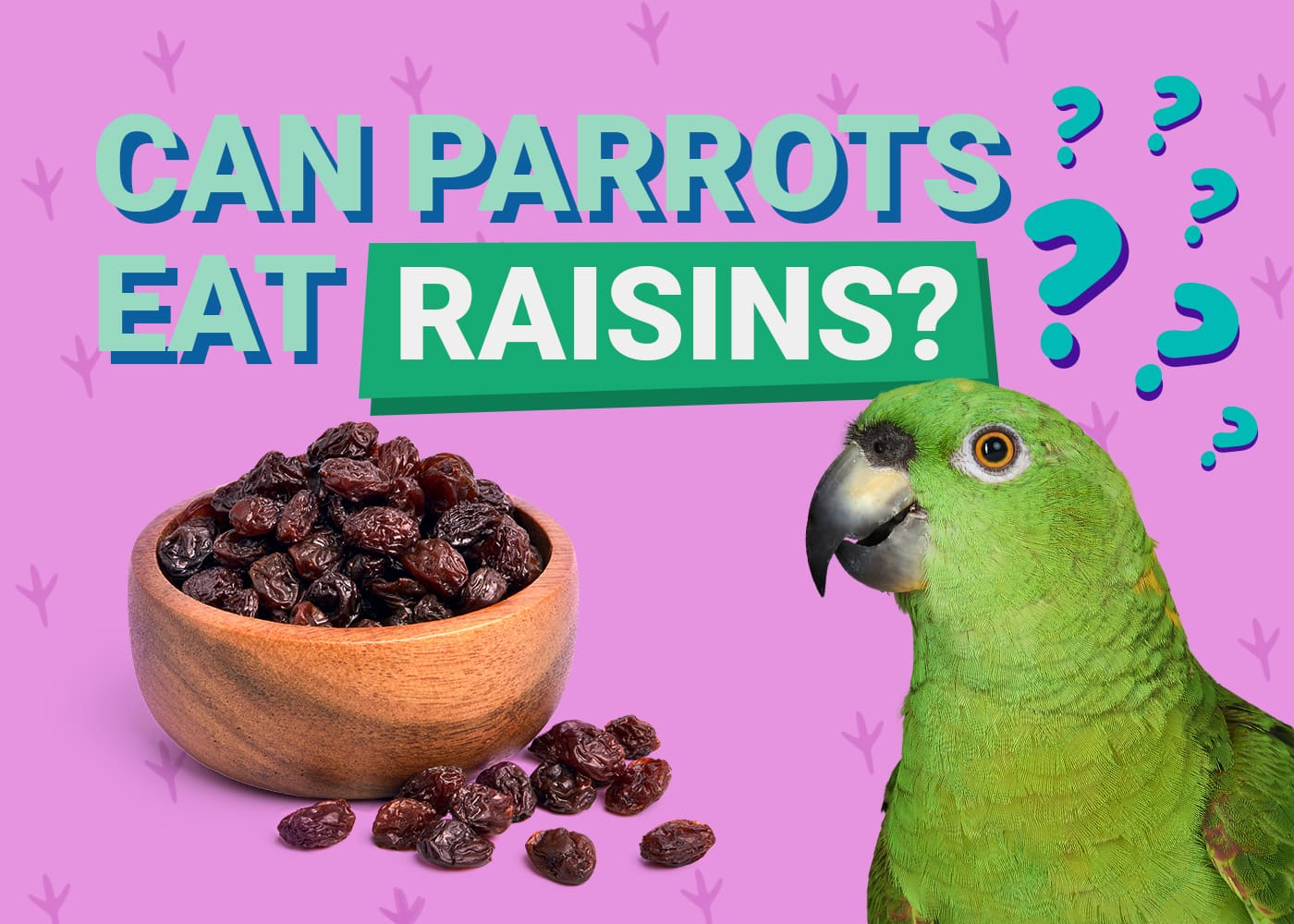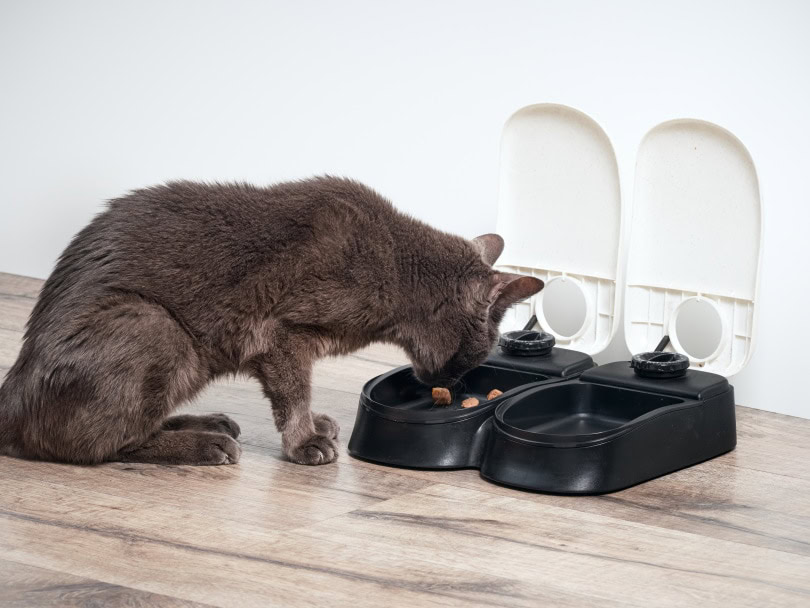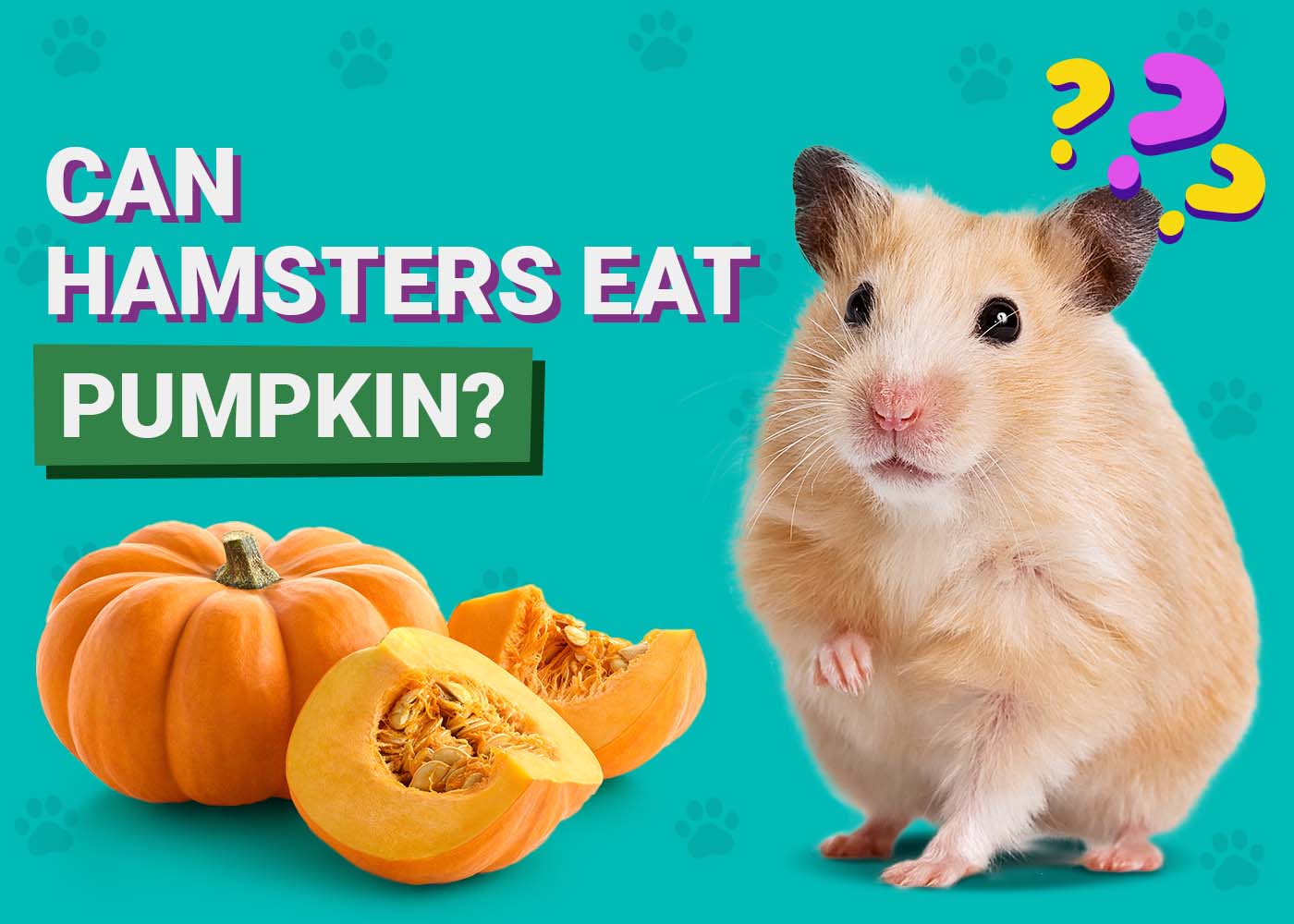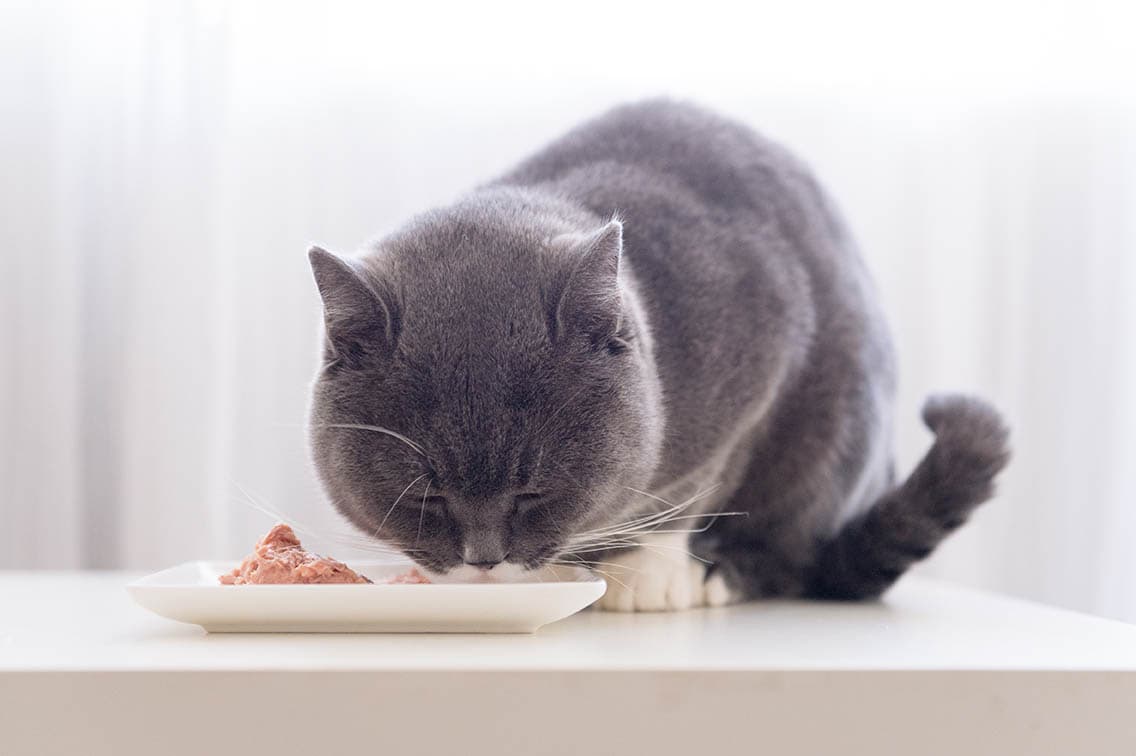Click to Skip Ahead
Owning a parrot can be a big responsibility. Trying to maintain a healthy diet for your bird, keeping their cage clean, and offering them the interaction needed to stay happy is a 24-hour obligation many people happily take on. When considering a parrot’s dietary needs, it’s important to keep treats and healthy snacks in mind. One of those treats is raisins.
If you’re asking yourself if raisins are a healthy treat for your parrot, the answer to your question is that while raisins are not toxic for parrots, they aren’t the healthiest fruit for them either; as such, they should only be offered very sparingly (if at all). If you own a parrot and want to offer your feathered friend a great diet, read on below to learn more about parrots and the concerns associated with adding raisins to their diet.

The World of Raisins
Most likely, you’ve tried raisins at some point in your life. Raisins are quite common throughout the world in various snacks, baked goods, and cuisines. Raisins are dried grapes. Grapes come from various parts of the world. Dried grapes have various looks and tastes. This is a result of how long they are dried.
Raisins are the result of drying grapes for roughly 3 weeks. During this time, the color of the grape changes slightly, and that is why many raisins, especially those made from red grapes, have the darker brown or green color we are used to.
Though raisins aren’t toxic for parrots, they are not an ideal fruit for them. Though many wild parrot species consume a great deal of fruits, our pet parrots hardly get enough exercise to warrant high amounts of fruits in their diet. The same is true for other high-calorie foods for parrots, such as seeds and nuts.
Grapes are quite high in sugar 1. Though intrinsic sugar is a natural component of all fruits, the amount of sugar present in grapes easily exceeds that found in other fruits such as apples 2, blueberries 3, cantaloupe 4, honeydew 5, bananas 6, and mangoes 7.
Raisins are even higher in sugar than grapes, as they are dried versions of grapes – the drying process strips the fruit of most of its water content, consequently increasing the total percentage of sugars in the fruit. Due to this reason, it’s incredibly difficult to justify the inclusion of raisins in a parrot’s diet, when other healthier alternatives exist (including grapes themselves).
Though raisins may definitely provide a parrot with certain benefits in the form of vitamins and minerals, these benefits can also be derived from other fruits as well. As such, though not toxic for parrots, it’s strongly recommended to not offer your parrot raisins.
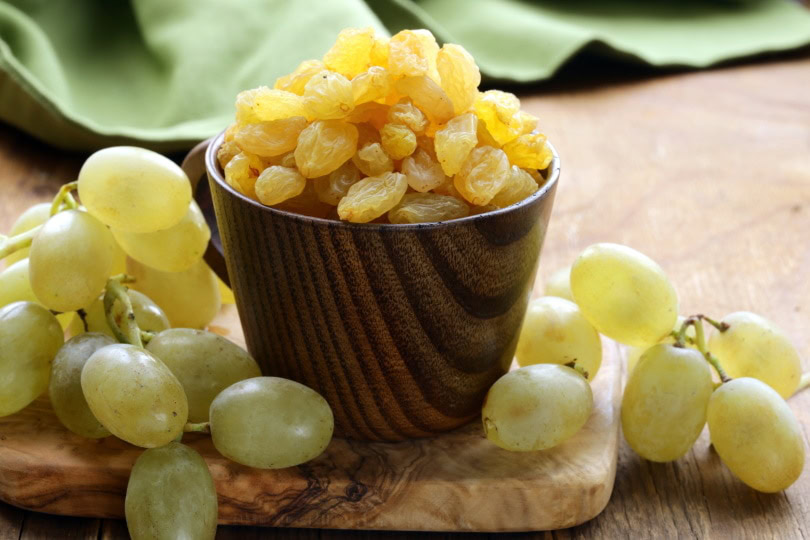
A Healthy Diet for Your Parrot
Most people think they should feed their parrot seeds daily to keep them healthy, but this isn’t exactly the case. For a healthy parrot and happy feathered friend, a mix of pellets and fresh foods is ideal.
Do note that the following recommendations are a general guideline for most parrots. However, they certainly aren’t set in stone. Your pet’s needs may be different, and their needs may also change throughout the year (for example, during times when they molt). As such, we strongly recommend reaching out to your avian veterinarian for a specific meal plan tailor-made for your pet.
Pellets
Roughly 50% to 70% of a parrot’s diet should consist of pellets. It’s best to pick a pellet that is specifically made for your pet parrot’s precise species.
Vegetables
The next major component of your pet parrot’s diet should be safe to consume vegetables.
Protein Sources
Nuts, seeds, and other sources of protein should be offered to your parrot as well, in fractions that are smaller than those of vegetables.
Fruits
Parrots definitely benefit from the inclusion of fruits in their diet. However, these should not constitute the majority of the diet of most pet parrot diets.
- See Also: Best Parrot Foods: Reviews & Top Picks
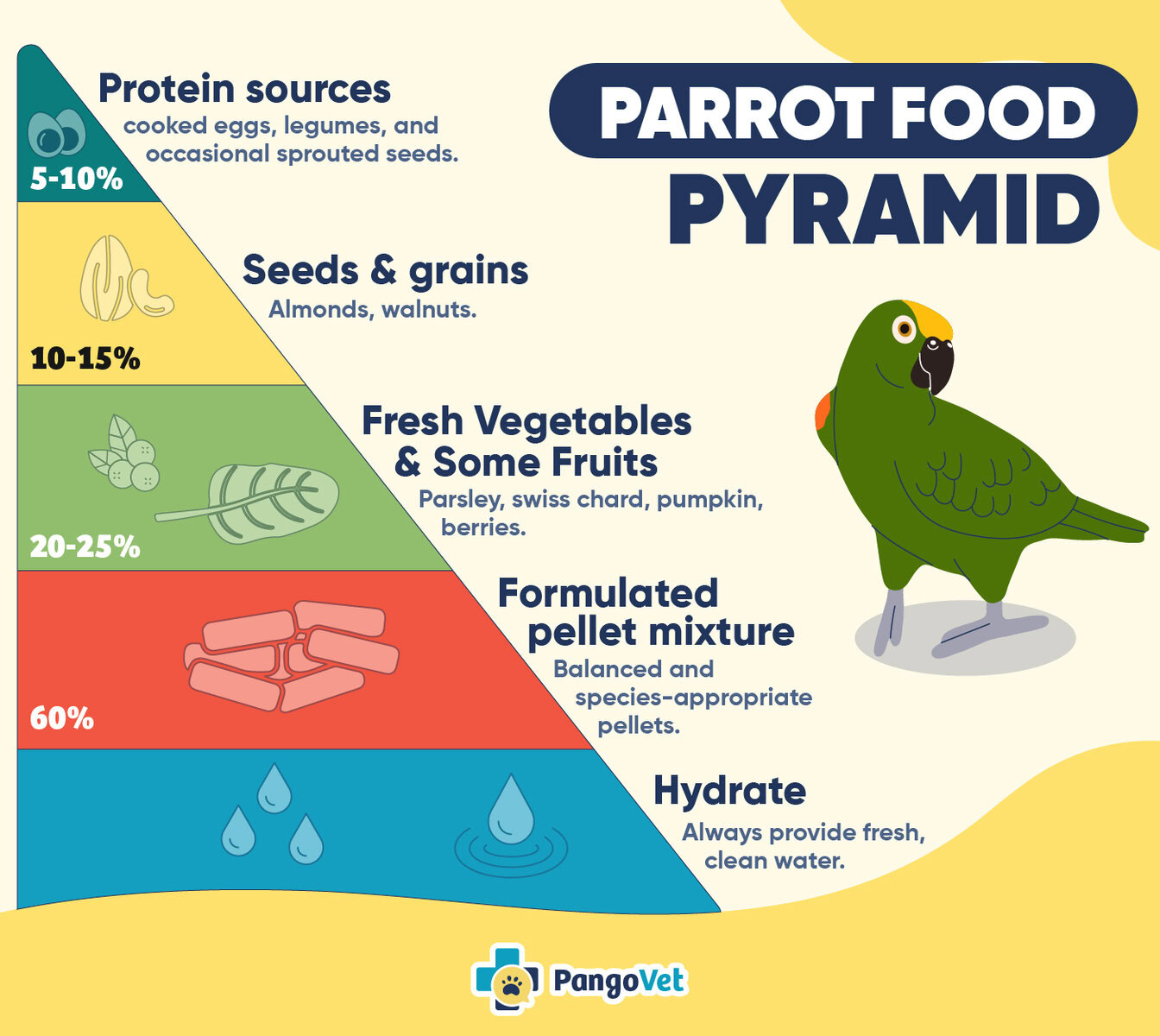
Other Foods Your Parrot Should Not Eat
Like with most animals, there are certain things parrots shouldn’t eat. Avoiding foods with dyes and preservatives is important. These types of additives can be dangerous. This is why using organic foods for your parrot is your best option. You should also consider keeping a close eye on your parrot’s intake of salt, sugar, and fats to avoid health problems.
There are some foods out there that are considered toxic to parrots. By offering these foods to your bird, you could risk serious health issues or death. Read over this list and keep it in mind any time you offer new treats or foods to your parrot.
- Dairy products
- Meat
- Alcohol
- Avocado
- Fruit seeds and pits
- Xylitol
- Onion
- Garlic
- Leeks
- Caffeine
- Energy drinks or sports beverages
- Candy
- Processed human foods (including baby food)
- Cassava (tapioca)
- Cocoa or chocolate
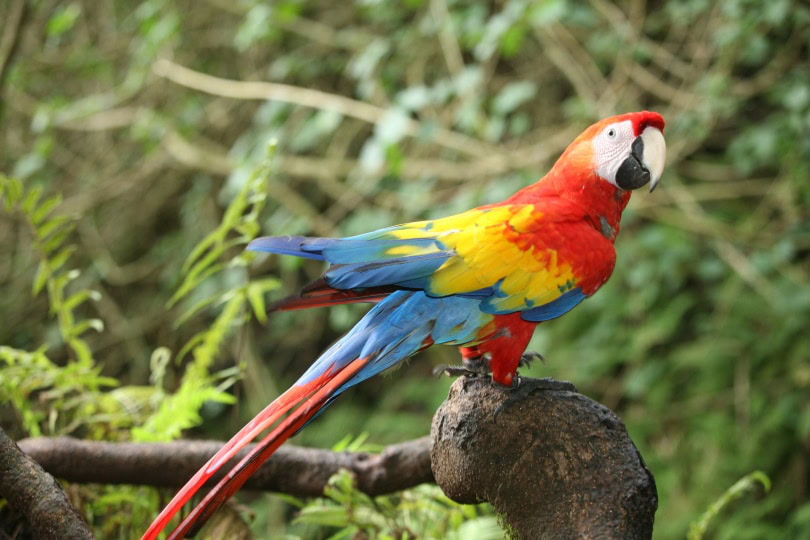

A Happy and Healthy Parrot
As you can see, raisins can offer a lot of benefits to your parrot. If you want to add a sweet treat your feathered friend will love to their diet, toss in raisins. Keep in mind, however, that proper feeding schedules and routines are required to keep your parrot both happy and healthy, and moderation is key.
Related topics:
Featured Image Credit: Pixabay
